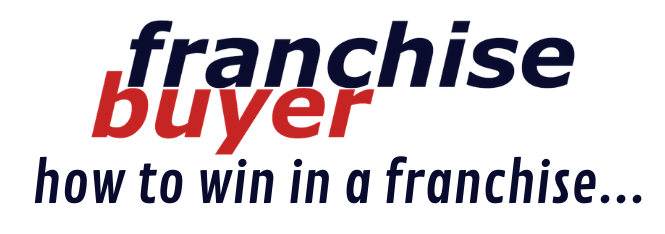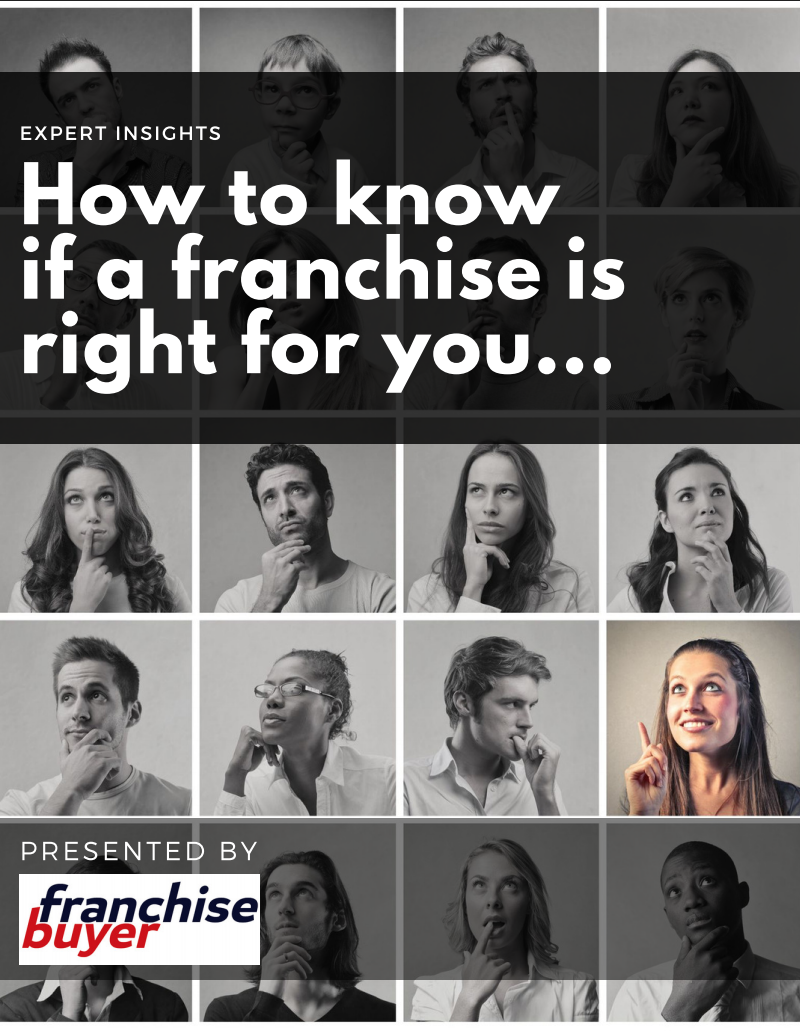
Redefining Entrepreneurship, one Business Owner at a time
Can anyone going into business be considered an entrepreneur? This is a common question that often surrounds the query of whether a franchise owner is a 'true' entrepreneur. Does it matter, or make any difference at all?
If entrepreneurs pursue opportunities, can franchisees who turn a pro ideation, pivoting and failure? In a sector where you need to carefully study the market before you fit to use this term? Or, is it really about creation, fined as individuals who launch your business, we spoke to organizations who all fall under this banner, to discover more.
Franchisors can be founders – ActionCOACH Brad Sugars
Founder and Chair of the No. #1 business coaching firm in the world ActionCOACH, Brad Sugars knows it is an elusive dream for many. ‘I knew I was meant to be an entrepreneur when I figured out I could make money renting my toys out to my brother.’
From an early age, the ‘love of business and being my own boss’ drew him to many jobs, businesses, and deals throughout his teens until, at the age of 22, he made his first million dollars. ‘Sounds easy, doesn’t it? Well, yes and no. For me, and much other successful entrepreneurs, I had an affinity for business ownership and an entrepreneurial spirit.
After making mistakes along the way, now commonly known as ‘failing’, Brad cites his ‘entrepreneurial character’ as key to both his learnings and successes. ‘Now, after two decades in franchising – with ActionCOACH – my entrepreneurial vision grew exponentially from my first goal of becoming a millionaire to now, educating budding entrepreneurs throughout the planet’.

Brad believes with mentorship and guidance, ‘plus following a few simple rules, just about anyone can learn to be a successful entrepreneur’. His tips:
Franchising is an excellent choice for the first, second, or even third-time entrepreneur. Further, business leaders, namely executives who are passionate and have a heart for business and seeing businesses succeed at their local level, often become successful entrepreneurs in the business services realm of franchising. In this step, I am talking about being a franchisee— owning franchise units from a parent franchisor. Of course, franchising your own business can be very successful…and fun. However, I always advise entrepreneurs not to try to franchise their own business unless they are going to build at least 17-19 units. Being the franchisor and the franchisee are two very different ballgames. Being a franchisor, while the potential financial gain is massive, it is far riskier than purchasing a franchise unit or two. Basically, franchising carries with it the same heavy workload and investment as a startup—sometimes more.
Entrepreneurship the democratic way – Mivote Adam Jacoby & James Skella
Mivote – the online voting platform – was born from a need to provide an alternative for Australians to engage in shaping government decisions.Te digital democracy app, fuelled by block-chain technology enables users to participate in issues on an individual basis. The brainchild of founder Adam Jacoby and brought to life with the help of technologist James Skella, they’ve been living and breathing entrepreneurship; while many have oscillated between the term.
Adam explains people within franchise networks need to question: ‘For what purpose would they see the benefit in labeling themselves an entrepreneur? Why is that the term that should be used to describe you? As an example, Jamie and I are long-term serial entrepreneurs, but it is not something, when people say, “what do you do?”, I say I’m an entrepreneur. It is a label that helps people understand for better or worse, the kind of work I am engaged in, but it is not a go-to descriptor for me because it doesn’t really mean anything.’
For him, the reality is, ‘if you are moving into a franchise space you are a business owner and there is nothing wrong with describing yourself as a business owner.’ If the franchisee can be creative, outside of what others are doing within the same brand or space, ‘then it is not a lesser term.’
James also stresses, having a successful business is more important than any labels and people shouldn’t forget that. ‘As a franchise, I don’t think it is a suitable term – but to Adam’s point – I don’t see why they would want to label themselves with that.’ He says, in a modern world, ‘entrepreneurship has connotations of high-risk ventures and that is certainly something that is ya know, risky amongst the franchises for example.’
Adding the label, ‘because of the buzz it currently has in the business community and the perception that somehow being an entrepreneur – or calling yourself an entrepreneur – elevates you above being a successful business owner’, is an aspect which irks
James.
‘My biggest gripe with the term ‘entrepreneurship’ is, it is overused.’ He sees a culture brewing of ‘academics and young professionals who try to define themselves by this word. ‘Teir response, often especially when you work in the startup space and technology is – “I am an entrepreneur” – it is not really a title you can give yourself.’
This liberal use of the word is ‘not only damaging to what it means to be an entrepreneur, but it is doing damage to the perceptions of how to accomplish the things that would make you one as an aspiring business person or, someone who has a genuine idea.’
The term being used incorrectly is something Adam hears regularly. ‘It is interchanged with business ownership and the two are not in any way the same thing. In my opinion, entrepreneurship is a step out of the business space – in a traditional sense – with an intent to innovate a space. Now that may be a product space, it may be a market space, a process space, but it requires – for it to be entrepreneurship – in my opinion, some risk.’
Going out on your own and pushing the envelope, ‘to a point where you don’t want to risk-take, although there is a risk profile required within it’ Adam reveals, is pertinent to understanding entrepreneurship. ‘Tere is something to lose if it doesn’t work. And I think it is about the innovation space connected to risk that makes it entrepreneurship in my opinion’.
James elaborates on this by describing how he encourages people – especially younger people – to remember, ‘you need to be something other than that title. And, if your aspiration is to be that title, it is probably not going to work.'

Reading, writing, arithmetic and now … small business ownership – Club Kidpreneur Gemma Alker
Defining this concept to young people – especially children – is something Club Kidpreneur General Manager, Gemma Alker does on a regular basis. When asking 8-12-year-olds in school if they know what the term means, she’s often met with a blank face, which she explains, reflects a ‘huge gap of knowledge.’
‘Then we will ask, what is entrepreneurship? Does anybody know that?’
‘Then, we will step back to, “Does anybody have a mum and dad in business? Does anybody know this face? Or this face?” And we will hold up a couple of pictures; such as the likes of Richard Branson or Steve Jobs and that’s when we start to get the lightbulbs turn on and that’s when they start to get what we are talking about.’
She describes how founder and patron Creel Price, has spent his life in this space, ‘… and he is often quoted as saying he was in entrepreneurship before it was cool.’ His idea to take micro business development to schools is now teaching children vital life skills.
‘It gives them an entirely new toolkit of language under the age of 12, including the experience to draw up their very first profit and loss statement; the idea of paying back debt; taking revenue and the concept of sharing your profit for the greater good of social causes; the idea of production lines and where do source your materials.’
Encouraging children to learn through failure is a focal part of the program and she advises ‘kids need to do that and we need to be comfortable with it as a society.’ As opposed to, ‘becoming restrictive in accountability and the linear approach to success – entrepreneurship is not like that. It’s about pivoting, we might tweak it this way to get that; get a little bit of feedback and go again.’
When it comes to applying this in a franchise business, Gemma points out the concept of intrapreneurship. ‘Because in a franchise there is the overarching brand strategy and the overarching guidelines of how to run and implement a franchise. So, each franchise is restricted within those parameters. But, not if they see themselves as an intrapreneur in charge of how they deliver on the ground in their space.’
This stems from Creel Price’s belief ‘you can still be entrepreneurial in an organization and you can still be entrepreneurial in how you approach your daily business, your marketing, messages to market and how you represent the business. Whether it is as a franchisor, whether it is a teacher or a large multi-national organization.






